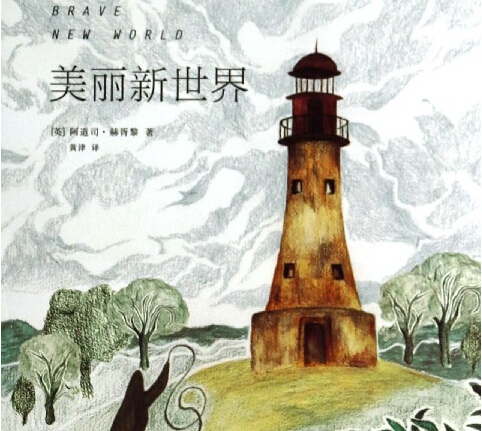But the hand only took him under the chin and turned his face, so that he had to look again into Popé's eyes.
但是那手只是抓住了他的下巴,把他的脸扭了过来,使他不得不再望着波培的脸。
For a long time, for hours and hours.
他们俩对视了很久,对视了几个小时,又几个小时。
And suddenly–he couldn't help it–he began to cry. Popé burst out laughing.
突然,他哭了起来——因为忍不住。波培哈哈大笑。
"Go," he said, in the other Indian words. "Go, my brave Ahaiyuta."
“去吧,”他用另一种印第安语说,“去吧,勇敢的阿海优塔。”
He ran out into the other room to hide his tears.
约翰逃了出去,到另外那间屋子去隐藏他的眼泪去了。

"You are fifteen," said old Mitsima, in the Indian words. "Now I may teach you to work the clay."
“你十五岁了,”老米季马用印第安话说,“现在我可以教你抟泥土了。”
Squatting by the river, they worked together.
两人蹲在江边,一起工作。
"First of all," said Mitsima, taking a lump of the wetted clay between his hands, "we make a little moon."
“首先,”米季马两手抓起一团湿泥说,”我们做一个小月亮。”
The old man squeezed the lump into a disk, then bent up the edges, the moon became a shallow cup.
老头把泥捏成了一个圆饼,然后让饼边竖起了一点;月亮变成了浅杯。
Slowly and unskilfully he imitated the old man's delicate gestures.
他慢慢地笨拙地学着老人那巧妙的动作。
A moon, a cup, and now a snake. Mitsima rolled out another piece of clay into a long flexible cylinder, trooped it into a circle and pressed it on to the rim of the cup.
月亮,杯子,现在是蛇,米季马把另一块泥土搓成了一根可以盘曲的长条,盘成了一个圆圈,再把它压紧在杯子口上。
Then another snake. And another. And another.
然后又是一条蛇,又是一条蛇,再是一条蛇。
Round by round, Mitsima built up the sides of the pot; it was narrow, it bulged, it narrowed again towards the neck.
米季马一圈又一圈塑造出了罐子的边。那罐子原来窄小,现在鼓了出来,到了罐口又窄小了。
Mitsima squeezed and patted, stroked and scraped; and there at last it stood, in shape the familiar water pot of Malpais, but creamy white instead of black, and still soft to the touch.
米季马挤压着,拍打着,抹着,刮着;最后那罐子站在了那里,就是马尔佩斯常见的那种水罐,只是颜色是奶油白,而不是黑的,而且摸起来还软。
The crooked parody of Mitsima's, his own stood beside it.
约翰的罐子站在米季马的罐子旁边,那是对米季马的罐子的歪扭的摹本。
Looking at the two pots, he had to laugh.
他望着两个罐子,忍不住笑了。
"But the next one will be better," he said, and began to moisten another piece of clay.
“下一个就会好一些了。”他说,开始润湿另一块泥。
To fashion, to give form, to feel his fingers gaining in skill and power–this gave him an extraordinary pleasure.
抟弄,成型,感觉到自己的手越来越巧,越来越有力——这给了他不寻常的快乐。
"A, B, C, Vitamin D," he sang to himself as he worked.
“A呀B呀C,维呀他命D,”他一边工作一边唱歌,
The fat's in the liver, the cod's in the sea.
脂肪在肝中,鳖鱼在海里。
And Mitsima also sang–a song about killing a bear.
米季马也唱了起来——那是关于杀熊的歌。
They worked all day, and all day he was filled with an intense, absorbing happiness.
他们俩工作了一整天,让他一整天都充满了强烈的令人陶醉的欢乐。
"Next winter," said old Mitsima, "I will teach you to make the bow."
“明年冬天,”老米季马说,“我教你做弓。”
He stood for a long time outside the house, and at last the ceremonies within were finished.
他在屋外站了很久。里面的仪式终于结束了,
The door opened; they came out.
门打开了,人们走了出来。
Kothlu came first, his right hand out-stretched and tightly closed, as though over some precious jewel.
科特路首先出现。他握紧了右手伸在前面,好像捏着什么值钱的珍宝。
Her clenched hand similarly outstretched, Kiakimé followed.
季雅纪美跟在后面,她也捏紧一只手,同样伸了出去。
They walked in silence, and in silence, behind them, came the brothers and sisters and cousins and all the troop of old people.
他们俩默默地走着,后面跟着他们的嫡。堂、表兄弟姐妹和所有的老人。
They walked out of the pueblo, across the mesa.
他们走出了印第安村落,穿过了石源,
At the edge of the clid they halted, facing the early morning sun.
来到悬崖边上,面对着清晨的太阳站住了。












